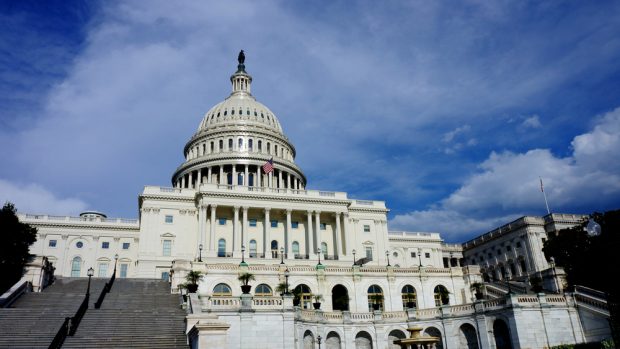
A group of 11 conservative organizations last week urged Senate Finance Committee Chairman Orrin Hatch (R-Utah) to leave the credit union tax exemption intact.
“The undersigned groups write to you today to underscore the importance of keeping that tax relief in place for everyone and, in particular, firms that fulfill the saving and borrowing needs of consumers,” the organizations said, in a letter to Hatch.
Also, last week, the Joint Committee on Taxation, Congress's official tax scorekeeper estimated that the credit union tax exemption is likely to cost the federal government $10.1 billion between 2017 and 2021.
The committee issues a report each year on tax expenditures and estimates the revenue lost as a result of the tax breaks.
Last year, the panel estimated that the federal government would lose $14.4 billion between 2016 and 2020 as a result of the credit union tax exemption. The committee does not offer an explanation for the change.
Hatch, head of the Senate's tax-writing committee, earlier this year questioned whether the credit union tax exemption is outdated. He asked the IRS to require federal credit unions—at least the largest ones—to file informational tax returns that would detail their activities.
Hatch also questioned whether credit union field of membership rules have become so loose that they essentially are meaningless.
In their letter, the conservative groups said that the Reagan Administration and Congress modernized credit union rules that often limited membership to a single employer or small geographic area. The new rules, the groups said, allowed people in related fields to form new credit unions or expand existing ones.
The groups added that credit unions are particularly important to those who serve in the military.
“The two largest credit unions do have substantial assets, but they are essentially limited to serving the families of active-duty military and veterans and some civilian defense employees,” they said.
The organizations said that while the Finance Committee should examine taxation of financial firms in light of changes in the economy, such an examination should include a comprehensive review of tax provisions affecting banks and credit unions.
“While credit unions are not taxed at the corporate level, their individual member-owners are fully taxed on the proceeds distributed by the credit unions, as they are taxed on interest,” they said.
Under the recently enacted tax law, banks could pay a smaller share of their income than members of credit unions do, they said.
“Since the goal of free-market tax reform is to reduce or eliminate double-taxation of saving and investment, we ask that the committee only pursue legislative options that achieve this end and discard proposals that simply add more punitive double taxation on certain types of financial institutions and consumers,” the concluded.
Groups signing the letter are: the Competitive Enterprise Institute; Americans for Tax Reform; Campaign for Liberty; the R Street Institute; the 60 Plus Association; the American Consumer Institute; the Center for Freedom and Prosperity; the Council for Citizens Against Government Waste; Less Government; the National Black Chamber of Commerce and the Taxpayers Protection Alliance.
Earlier this year, a separate group of conservative organizations sent Hatch a letter supporting credit union taxation.
Interestingly, Andrew Quinlan, president of the Center for Freedom and Prosperity signed both letters.
© Touchpoint Markets, All Rights Reserved. Request academic re-use from www.copyright.com. All other uses, submit a request to [email protected]. For more inforrmation visit Asset & Logo Licensing.






